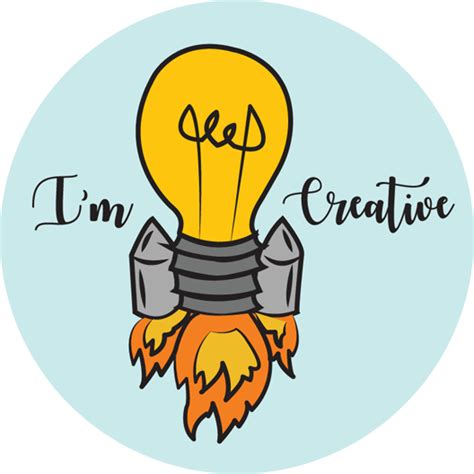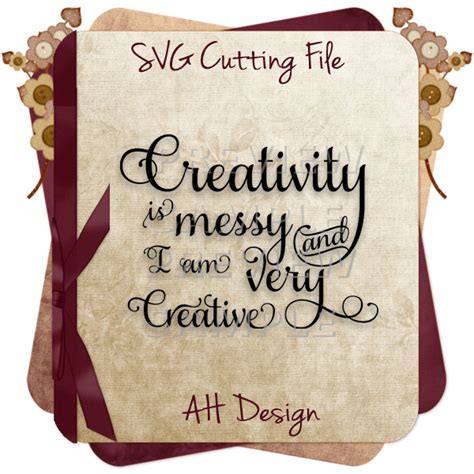It’s no surprise that many people struggle to find time for creative pursuits. With the demands of work and other obligations, it can be challenging to carve out space for creativity. Burnout is another factor that can stifle creativity. When we’re exhausted and overwhelmed, it’s tough to summon the energy and inspiration needed to create something new.
However, it’s important to prioritize creativity and find ways to incorporate it into our lives, as it can be a powerful tool for reducing stress and promoting overall well-being.
What causes a loss of creativity?
Sometimes, when we feel like we lack creativity, it’s because we’re overwhelmed with too many ideas or not sure where to start. This can be a frustrating problem, but it’s not impossible to overcome. I’ve experienced writer’s block myself in the past, and it can be discouraging when you have a goal in mind but no clear path to get there. However, with some patience and persistence, it’s possible to break through the block and find the inspiration you need to create something great.
Is it normal to lose your creativity?
There are numerous reasons why people may experience a decline in creativity, and these can vary from person to person. It’s important to pay attention to your life circumstances as they can provide valuable clues. For instance, if you’re feeling depressed or anxious about your artistic abilities, it may seem like your creativity has vanished. However, this is not necessarily the case, and there are ways to overcome these obstacles and reignite your creative spark.
How do I regain my creativity?
To regain creativity, it’s important to take a break from routine and engage in activities that inspire you. This could be anything from taking a walk in nature to trying a new hobby. Meditation can also be helpful in quieting the mind and allowing for new ideas to flow. Research has shown that meditation can increase creativity by improving cognitive flexibility and reducing stress levels.
Additionally, practicing mindfulness can help you stay present and focused, allowing for more creative ideas to emerge. It’s important to prioritize self-care and make time for activities that bring you joy in order to foster a more creative mindset.
Can you regain lost creativity?
Sometimes, after pondering a project or creative endeavor for an extended period, generating fresh ideas can be challenging. However, there is a simple solution to reignite your creativity: take a break from the task at hand and come back to it later. This approach can help you approach the project with a fresh perspective and potentially lead to new and innovative ideas.
Can depression hinder creativity?
Although there is no definitive proof that depression leads to increased creativity, research and observations have suggested a correlation between the two. It is important to note that while depression does not necessarily make someone more creative, there are common characteristics shared by those with mood disorders and creative individuals. These traits include introspection, sensitivity, and a unique perspective on the world. While depression can be a debilitating condition, it is possible to channel these traits in a positive way through creative outlets such as writing, art, or music.
Does creativity decline with age?
It’s important to note that the correlation between age and creativity varies depending on the field. For instance, certain creative professions like mathematicians and lyrical poets tend to experience early peaks and quick declines, while others like historians and philosophers tend to have later peaks and more gradual declines. This highlights the fact that creativity is not solely determined by age, but rather by a combination of factors unique to each individual and their chosen field.
What age is creativity the highest?
According to research conducted by psychologists, creativity tends to reach its peak during the mid to late 30s or early 40s. This suggests that individuals in this age range may be more likely to produce their best work and come up with innovative ideas. However, it’s important to note that creativity can still be cultivated and developed at any age through various practices such as meditation.
What limits your creativity?
Our own negative thoughts and self-criticism can hinder our creativity and limit our potential. When we constantly doubt ourselves, we may shy away from taking creative risks or exploring new forms of expression. This can lead to a stagnant and unfulfilling creative life. By practicing meditation, we can learn to quiet our inner critic and cultivate a more positive and open mindset.
This can help us tap into our creativity and unlock our full potential. Studies have shown that meditation can reduce symptoms of anxiety and depression, which are often linked to negative thinking patterns. By reducing stress and promoting a more positive outlook, meditation can help us overcome the mental barriers that hold us back from reaching our creative goals.
What is the age of human creativity?
Many experts believe that the Upper Paleolithic era, which began around 40,000 years ago, marked the beginning of human creativity. During this time, our ancestors began creating intricate designs and artwork on cave walls, showcasing their imagination and ingenuity. This period is often referred to as the birth of innovation, as it marked a significant shift in the way humans approached problem-solving and creative expression.
Are you born with creativity or is it learned?
Rewritten paragraph:
Many people believe that creativity is an innate quality that some are born with and others are not. However, this is a misconception. Creativity is a skill that can be developed and improved through practice and dedication. While there are various tools and techniques that can enhance creativity, one of the most effective ways to boost your creative output is by nurturing your internal drive to generate novel and innovative ideas.
By cultivating a mindset that values and prioritizes creativity, you can unlock your full creative potential and achieve breakthroughs that you never thought possible.
Is creativity born or made?
It’s a common misconception that creativity is an innate talent that some people are simply born with. However, the truth is that creativity is a skill that can be developed over time with the right environment and practice. When people say, “you were born with it,” they’re overlooking the hard work and dedication that goes into honing one’s creative abilities. In reality, creativity is a result of a combination of factors, including exposure to new experiences, a willingness to take risks, and a commitment to learning and growth.
So, if you’re feeling like you’re not a naturally creative person, don’t worry – with time and effort, anyone can become more creative.
Is creativity born out of boredom?
Studies have shown that boredom can actually be beneficial for our creativity and productivity. In fact, it can lead to innovative and brilliant ideas. Sometimes, we need that push of boredom to motivate us to make positive changes in our lives. Taking time to clear our minds through activities like meditation can also enhance our creativity and productivity.
So, the next time you find yourself feeling bored, embrace it as an opportunity to tap into your inner creativity and improve your overall well-being.
Are intelligent people prone to boredom?
According to research, individuals with high intelligence tend to get bored easily and may appear lazy due to their tendency to spend more time thinking. A recent study conducted by the Florida Gulf Coast University examined the activity levels of a group of individuals categorized as either “thinkers” or “non-thinkers” over the course of a week. The findings suggest that those who engage in more mental activity may not necessarily be physically active, leading to the perception of laziness.
What creates creativity?
Studies have shown that various cognitive functions such as working memory, abstraction, planning, and cognitive flexibility play a crucial role in promoting creative thinking. This highlights the importance of having a healthy and active brain to enhance creativity. Meditation has been found to be an effective way to improve these cognitive functions, which can ultimately lead to increased creativity. By practicing meditation regularly, individuals can reduce stress levels and improve their overall mental well-being, which can positively impact their ability to think creatively.
What would life be like without creativity?
In order to truly experience life to its fullest, we must tap into our creativity and imagination. Without these qualities, we limit ourselves to only what is visible and tangible. Our childhood is a time when our imagination runs wild, and it’s important to hold onto that sense of wonder as we grow older. Without creativity and imagination, we wouldn’t have the amazing works of literature, art, and technology that we have today.
It’s important to nurture these qualities within ourselves and encourage them in others.
What to do when you lose creativity?
When you lose creativity, it can be frustrating and discouraging. However, there are several things you can do to reignite your creative spark. One option is to take a break and engage in activities that inspire you, such as reading, listening to music, or spending time in nature. Another approach is to try new things and step outside of your comfort zone.
This can help you see things from a different perspective and generate fresh ideas. Additionally, practicing mindfulness and meditation can help reduce stress and clear your mind, allowing for more creative thinking. Finally, don’t be afraid to seek support from others, whether it’s through brainstorming sessions or collaborating with a creative partner. Remember, creativity is a process and it’s okay to experience setbacks along the
How do I regain childlike creativity?
Regaining childlike creativity can be a challenge for adults who have become accustomed to structured thinking and routine. However, there are several ways to tap into your inner child and unleash your creativity. One way is to engage in playful activities such as drawing, coloring, or playing with toys. Another way is to try new things and take risks without fear of failure.
Additionally, practicing mindfulness and meditation can help quiet the mind and allow for more creative thinking. It’s important to remember that creativity is not limited to artistic expression and can be applied to all aspects of life. By embracing a childlike curiosity and openness, you can unlock your full creative potential.
Related Article
- Why Am I Losing Tiktok Followers?
- Why Am I Hungry On Phentermine?
- Why Am I Getting Waitlisted Everywhere?
- Why Am I Drawn To Trees?
- Why Am I Drawn To Cemeteries?
- Why Am I Dizzy After Vaping?
- Why Am I Craving Red Onions?
- Why Am I Craving Green Olives?
- Why Am I Craving Chinese Food?
- Why Am I Craving Brussel Sprouts?


